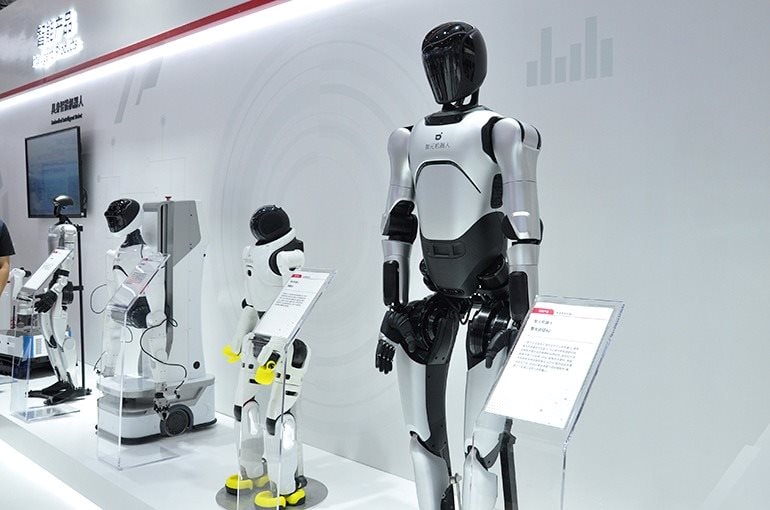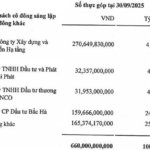
According to a recent report, the production cost of humanoid robots is expected to plummet by 60 to 70% over the next decade, driven by a maturing supply chain and emerging economies of scale. China’s robust supply chain infrastructure positions it as a key player in this industrial advantage.
Over the past decade, material costs for new energy vehicles have dropped by 50 to 60%, and a similar trend is emerging in the humanoid robot sector. Costs are projected to fall from $40,000 to $50,000 to approximately $10,000 to $20,000 by 2035, as stated by U.S.-based management consulting firm Bain & Company in a report released on November 26.
For instance, the price of planetary roller screws and six-axis force sensors, which account for roughly 40% of humanoid robot production costs, is anticipated to decrease by 70 to 80% as more companies enter the manufacturing arena, Bain noted.
Regarding core robot components, China is poised to achieve large-scale production capabilities, leveraging its vast supply chain and rapidly advancing manufacturing technologies and processes. This will create a significant industrial advantage, according to Zhao Tianchen, a Bain executive, in an interview with Yicai.
Bain predicts that planetary roller screws and six-axis force sensors will achieve cost optimization through mass production within 3 to 5 years. Other critical components, including AI chips, batteries, and thermal management systems, may require 5 to 10 years to reach significant technological breakthroughs.
China has a strong foundation for developing AI chips, with low-end chips expected to achieve technological independence and control within the next five years, while high-end chips may see substantial advancements within a decade, Bain highlighted.
Although the global humanoid robot industry is still in its exploratory phase, as production costs continue to decline, robots will surpass human labor in terms of return on investment in certain industries. This marks a pivotal moment for large-scale labor replacement, Bain observed.
The humanoid robot industry is set to enter a golden development phase over the next 5 to 10 years, with global sales projected to reach 6 million units and the market valued at $120 billion by 2035. In a more optimistic scenario, sales could exceed 10 million units, while the market could reach $260 billion.
During the initial exploratory phase, the primary markets for humanoid robots are scientific research and industrial pilots, with automotive, electronics, and machinery manufacturers leading the way in labor replacement. Eventually, robots will expand into healthcare, logistics, commerce, and household applications, Bain noted.
“Chinese EV Maker Forced to Dismember Humanoid Robot Onstage to Prove Its Authenticity”
According to *carscoops*, several Chinese automakers are rapidly venturing into robotics, developing humanoid machines capable of walking and speaking with remarkable human-like precision.
Thác Bà Hydropower Announces Second Cash Dividend Payout for 2024
The Board of Directors of Bac Ha Hydropower Joint Stock Company (UPCoM: BHA) has approved the payment plan for the second cash dividend of 2024 to its shareholders.










































